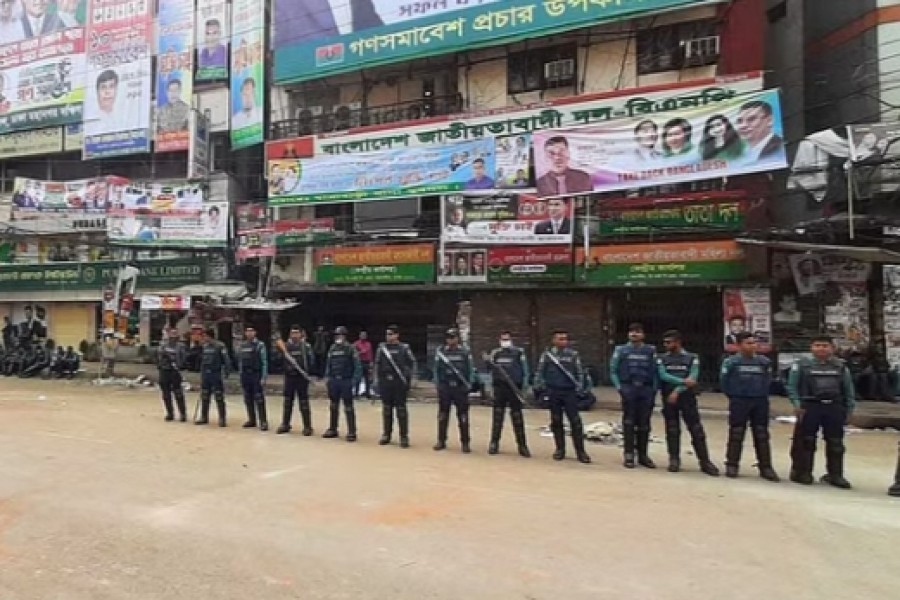The government had hoped for a settlement of the dispute with the BNP over the venue of its Dhaka rally, but the issue turned violent. Finally, the two sides appear to have reached a consensus over the matter.
BNP Secretary General Mirza Fakhrul Islam Alamgir on Thursday evening had said they would hold the rally in Naya Paltan, defying police and the government who maintained the party would not be allowed to demonstrate by blocking streets.
Hours after Fakhrul’s comments, the opposition party agreed to use an alternative venue. In a meeting with police, a BNP delegation said they wanted to hold the rally in Kamalapur stadium while the law enforcers proposed Mirpur Bangla College ground, reports bdnews24.com.
The party and police said both sides would visit the two grounds to make a final decision. “We’ve reached a consensus,” said Harunor Rashid, chief of Dhaka Metropolitan Police’s Detective Branch.
Meanwhile, the Awami League and its affiliates strengthened their presence in the neighbourhoods of Dhaka as Prime Minister Sheikh Hasina asked them to be vigilant to attempts at creating disorder.
“Please be prepared so that no one can cause harm to the public. The hands attempting to burn will have to be burnt. We don’t have time to sit idle. There’ll be no mercy,” she said.
BNP, government hint at consensus on rally venue, but concerns linger after deadly violence
Sheikh Bazlur Rahman, president of the Awami League’s Dhaka Metropolitan North Unit, said they would organise processions and rallies in every ward on Friday, a day before the BNP’s planned rally in the capital.
Police have beefed up security in Naya Paltan and at the accesses to the city to prevent more violence.
But concerns have remained with the next general election a year away. The US and the UK alerted their citizens in Bangladesh to possible violence before the election, especially surrounding the Dec 10 rally.
Former ambassador Humayun Kabir said Bangladeshi politicians should not give Dhaka-based foreign diplomats the chance to comment on the country’s political situation.
“We are already facing a deep economic challenge which needs to be overcome together. The addition of a new problem to this crisis is undesirable,” he said.
Retired Major General Abdur Rashid, executive director of Bangladesh Institute of Conflict, Law and Development Studies, said: “Obviously tension is rising everywhere.”
“If you create tension over a peaceful programme, people will ignore it for their own safety.”
Iftekharuzzaman, executive director of Transparency International, Bangladesh, urged both political camps to act responsibly to avoid deadly violence.
“A person has died. We are concerned about it. Such conflict and violence are bad for both sides. It’s a bad omen for democracy.”


